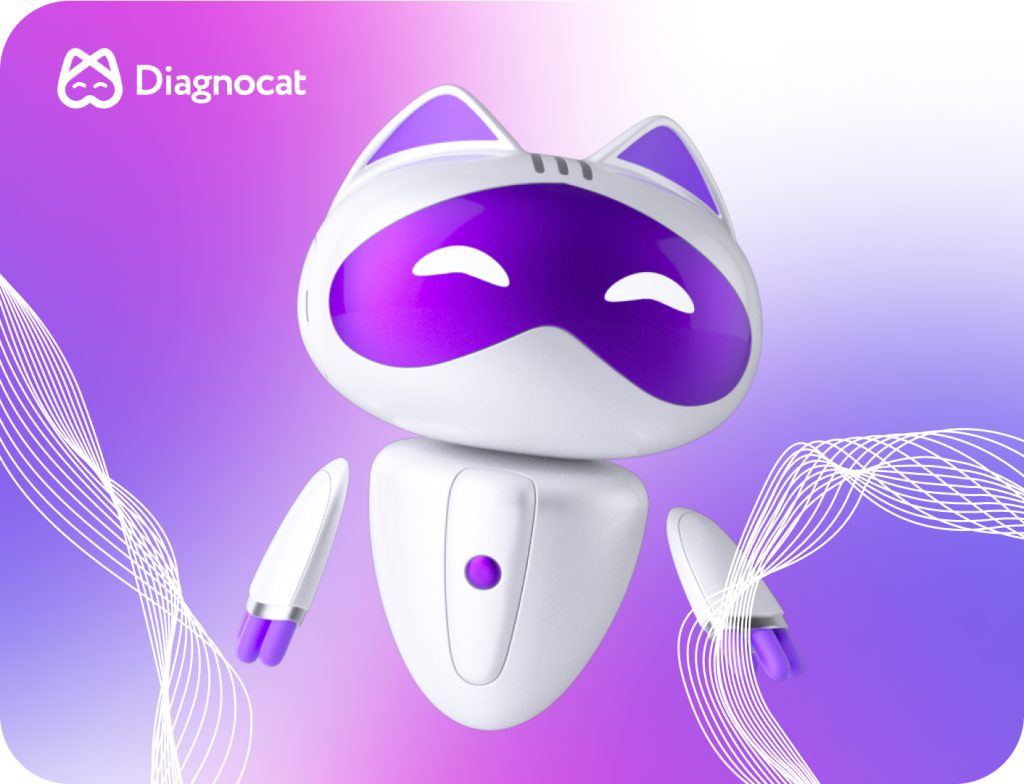Detecting and Classifying Caries Using Dental AI
A damaged tooth is like a tiny rebel that causes mayhem in the mouth in no time. Be it dental caries, periapical pathologies, or an old, troublesome filling; an aching, problematic tooth is the most common reason for a dental visit (1). Modern dentistry, however, is proactive in its treatment plan. There has been a paradigm shift towards preventive dental care in the past few decades, which focuses on the early detection of incipient and moderate caries. Today, dental AI is supporting preventive dental medicine with this task by taking caries and periapical lesion detection to the next level (2).
Whether it be incipient caries, white spot lesions, snugly restored interproximal caries, or periapical lesions, a dental AI software is capable of capturing all.
Diagnocat AI is such a dental AI software with an algorithm that can detect and support endodontic practitioners to diagnose and treat periapical lesions and deep carious lesions (3).
Here is how you, as an AI dentist, can work with Diagnocat to support your patients better:
- Diagnocat takes caries detection beyond visual, tactile, and chair-side radiographic analysis. By analyzing a series of IOPARs, regardless of the number of images shot, Diagnocat can automatically generate a template which includes all the images, assigned tooth numbers, pathological condition observed and a complete radiological report.
‘The analysis is sensitive to even the smallest inception of dental caries.’
- Cases of multiple tooth decay and subsequent pulpal involvement are sometimes hard to analyse, and co-relate. Be it an OPG (orthopantograph) or a CBCT (Cone-beam computed tomography systems) scan, Diagnocat produces a colour-coded dental chart showing unhealthy teeth that helps the practitioner decide on the restorative and/or endodontic treatment plan.
- The inbuilt viewer highlights the damaged teeth, allowing easy communication with your patients during a regular dental checkup. You can do away with traditional models that leave the patient imagining their dental conditions.
By enhancing diagnostic accuracy, enabling early intervention, and promoting preventive care, dental AI is transforming how the dentist can combat carious lesions and prevent it from snowballing into a periapical lesion, whilst simultaneously ensuring that existing periapical lesions are appropriately dealt with.
Analysing Periapical Lesions Made Easy
Periapical pathologies are visually detected on a radiograph but early periapical lesions are often under-analyzed or missed completely as no symptoms are yet being reported by the patient. This intricate area around a tooth’s root with intertwined nerves, blood vessels, and delicate soft tissue structures, is an easy target for chronic infections. Lesions could be anything from mild PDL (periodontal ligament) widening and granulomas to large periapical cysts. A differential diagnosis is important to deduce an appropriate treatment plan.
Diagnocat contributes towards a better understanding of the periapical region of affected teeth (4).
It’s machine-learning model has been trained to detect up to 65 conditions from a single reconstruction of a CBCT.
The reconstructed image has an attached tooth card that will assist you and your patient in 2 ways:
- Online 3D Viewer
This feature allows the dentist to view a multiplanar reconstruction of the specific tooth. You can rotate and align the viewer axes as needed to understand the periapical anatomy.
- Automatically-Generated Cross Sections
A complete series of cross-sections is generated automatically. Just fine-tune the image by clicking only on the highlighted areas of interest and correlating it with the color-coded tooth chart below, making it easy to interpret and explain to your patients.
‘Diagnocat has been attributed to providing quality periapical lesion detection that exceeds 90%.’(5)
Dental AI Solutions for the Quality Assessment of Endodontic Fillings
It is unquestionably challenging to find the root cause of a failed RCT. When perfect oral prophylaxis and meticulous hygiene yield no results, Diagnocat’s AI dental software can add some value (6).
Diagnocat’s quality assessment for root fillings incudes:
- Intra-oral X-rays: Locating problem-areas associated with old RCTs is made easier using a partial view of an intraoral X-ray which can focus on the problematic portion of the root filling.
- Panoramic view: A color-coded dental chart highlights the dental issues detected by Diagnocat’s AI.
- 3D view: The graphical and volumetric visualization of the root canal anatomy is ideal for detecting factors such as voids, overfilling, or underfilling of the gutta-percha.
Diagnocat’s collaborative tool further allows the sharing of the reports with your endodontists to make informed decisions about the need for further intervention or adjustments. Dental AI systems improve endodontic filling quality control, which enhances patient satisfaction and treatment outcomes.
Diagnocat AI: A dentist’s Personal Virtual Assistant
Say hello to your new dental sidekick.
Diagnocat AI is your virtual assistant designed to ensure exceptional care (6).
As your personal dental assistant on-the-go, whether it be on a laptop or your mobile phone, Diagnocat AI brings next-level accuracy to dental science. With its advanced algorithm and natural language processing, it will conjure real-time chairside support in the form of 3D viewing of the maxilla and the mandible, analyzing and preparing x-ray reports, collaborating with your peers, and streamlining the administration of the dental office. While Diagnocat does not aim to overpower your knowledge, it saves you from lengthy consultations, age-old study models for demonstrations, and the hazards of an incomplete, unrealistic treatment plan. Let your virtual dental assistant handle the logistics while you focus on your patients’ smiles.




